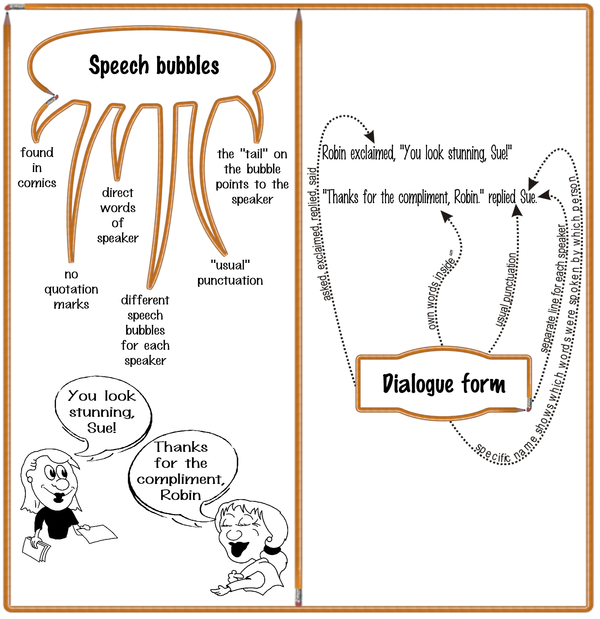| << Chapter < Page | Chapter >> Page > |
(The actual words a person says/speaks)
These examples demonstrate two ways of writing direct speech:


Many court cases involving young children collapse because the youngsters are unable to testify competently in the intimidating surroundings of a court set-up.
Even with the introduction of closed circuit cameras, which relay testimony from a room adjacent to the court, the thought of testifying to a courtroom filled with official-looking adults in black Batman-like garb is daunting to many minors.
At Cape Town’s Tygerberg Hospital, the TygerBear Social Work Unit for Traumatised Children aims to assist children in making the court experience less frightening, whether they’re witnesses or victims.
Here young children who have to testify in special courts for sexual offences involving minors and older ones who testify in open court are taught to view their participation in a trial as helpful to the judicial process.
In the colourful space, which is home to the unit, social workers use teddy bears, sketches, puppets and other tools to introduce the legal system to the children.
And through this play therapy children become more and more accustomed to what they at first considered a harrowing experience.
Social worker Judith Booysen said children often felt as if they were the guilty parties when questioned by lawyers.
“It is important for children to know that their evidence is part of the trial and whatever they say will not be the only factor deciding the outcome of the case. They are not responsible for the sentence handed down by the court.
“They’re easily frightened by official-looking adults who speak a language (legalese) they don’t understand.
“This, together with questions asked by the defence, can break down their testimony and they start answering incorrectly because they’re frightened.”
Children under 18 in need of such court preparation are referred to the unit by public prosecutors.
“We receive about 50 referrals for court preparation a month. Children are taught that court staff have a job to do and by testifying the children will help them with that job.
“We also empower them to speak up in court and to tell the facts as they know them,” Booysen said.
Social workers use sketches and puppetry to familiarise children with the inside of the court and where each official sits and what their roles are.
“This already makes the child feel more comfortable.”
She said that because social workers liased with the police and therefore knew the facts of each child’s case, they knew how to deal with each particular child.
“We don’t tell them what to say. We rather encourage them to tell the truth.
“Our programme is very successful and it has been proven that a child can’t go to court unprepared. It is intimidating enough for an adult to testify,” Booysen said.
The unit also runs a group court preparation programme.
The unit’s head, Manette de Jager, said: “We desperately need sponsorship to sustain the programme. Some of the children don’t have money for transport and we have to acquire new equipment all the time.”

Notification Switch
Would you like to follow the 'English home language grade 6' conversation and receive update notifications?